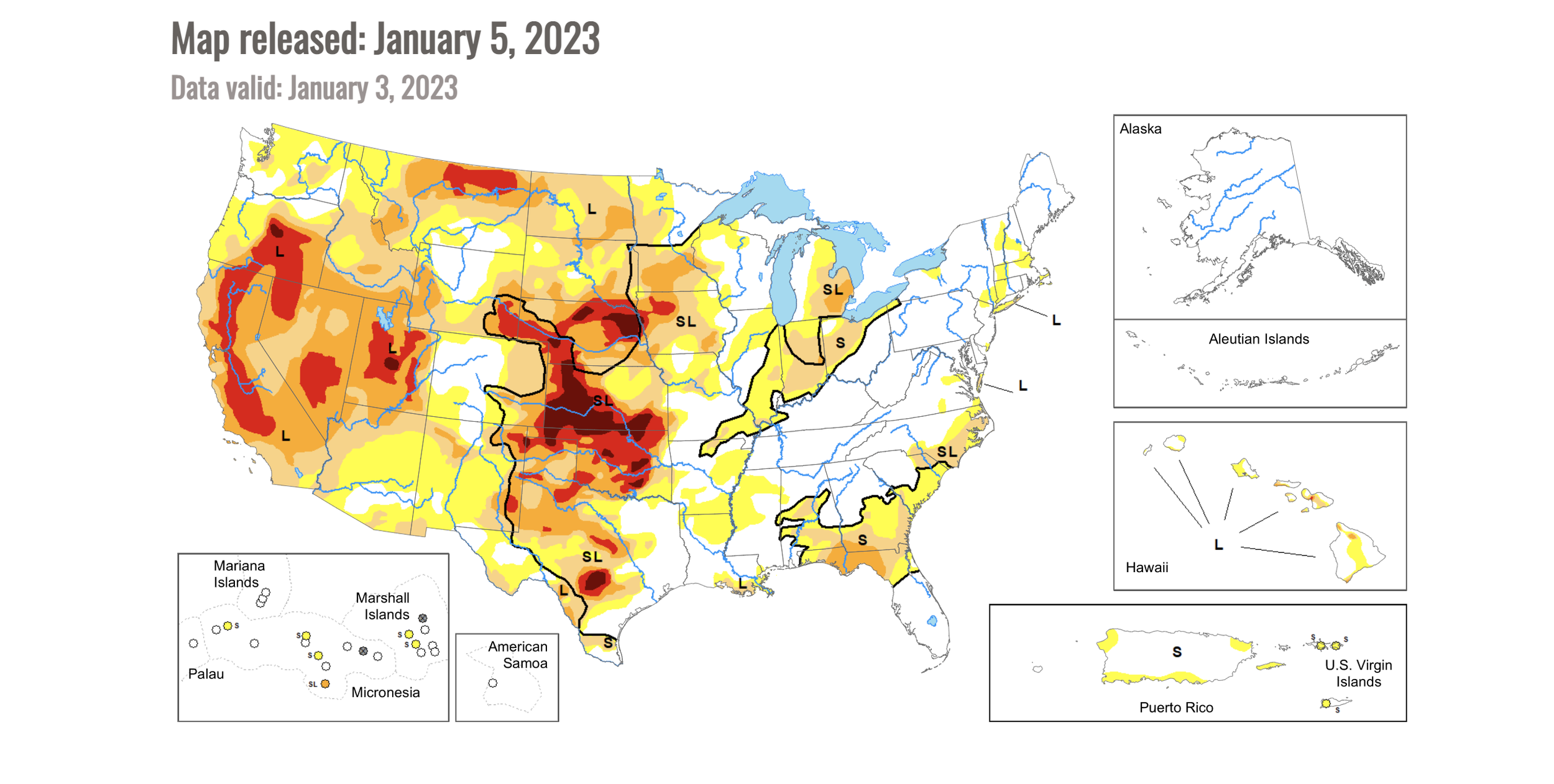Proso Millet Impacts Nationwide Drought Conditions
How this wonder grain is helping farmers across the nation, and globe produce more on their drought-prone acres.
Drought.
This seven-letter word has been a continuous pain point for producers around the planet. For U.S farmers, this remained top of mind throughout the 2022 growing season as their hearts sank watching their crops slowly burning away from the lack of rainfall.
If you traveled across the world, European farmers were feeling drought conditions. China saw waterways completely dry up. Africa took a hard punch by having the longest drought in 40 years as they suffered through another missed rainy season.
2022 is now being called the Year of the Drought, and as we enter 2023, many wonder how we are going to overcome this lack of moisture to grow the necessary volume of crops we need to feed the world.
As shown in Figure 1, below, here are the current U.S. drought conditions across the U.S. as of January 3, 2023, according to the National Drought Mitigation Center.
Figure 1: U.S. drought conditions as of Jan. 3, 2023.
Plant breeders have improved the yield and productivity of many crops, yet, very few can profitably grow on minimal moisture and produce something worth the time, energy and money to run equipment across the field. That is until now.
Dryland Genetics has been working eagerly on solving the problem of having a grain that can not only grow uniformly in dry conditions but can thrive in drought conditions. Through advanced research and modern genetic breeding, Dryland Genetics has been able to take the ancient grain, proso millet, and improve the crop to make it more competitive in farmers’ fields.
This grain grows exceptionally well in arid and semi-arid regions (Kansas, Colorado, South Dakota, Oklahoma, we are talking to you!). With Dryland’s Genetics research and commercial development, proso millet varieties can be easily added to a crop rotation and is a welcomed answer for many producers and their pocketbooks.
How does our proso millet compare to other crops’ water usage? Check out the list below.
• Corn | 25-30 in. water/acre
• Sorghum | 20-22 in. water/acre
• Barley | 16-18 in. water/acre
• Soybeans 15-25 water/acre
• Proso Millet | 13 in. water/acre
With continued climate change and environmental challenges across the world, we are confident in the economic vitality Dryland Genetics proso millet varieties will bring to growers, makers and consumers.
If you have an interest in our DLG240 or DLG40 seed varieties or desire to gain more knowledge of the global impact of proso millet, please reach out to us.

